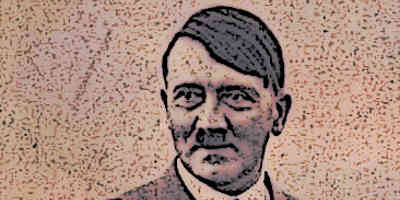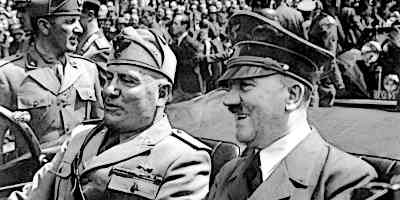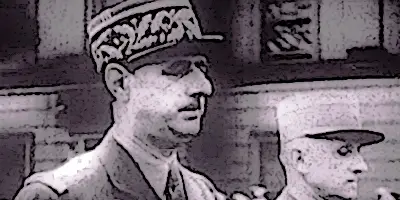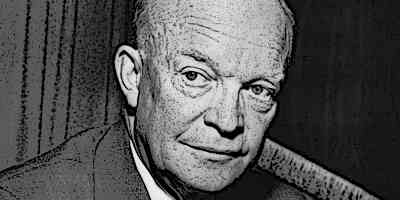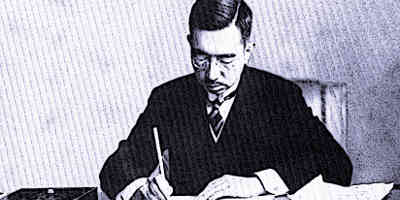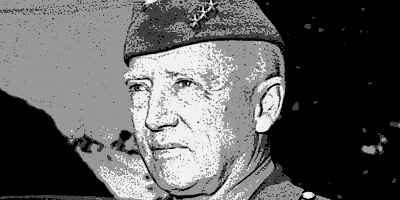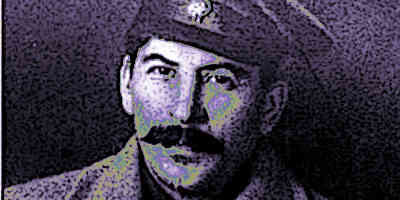Adolf Hitler
Adolf Hitler was the leader of the Nazi Germany from 1933 to 1945 Read more about the Adolf Hitler >>
Benito Mussolini
Benito Mussolini was the 'Fascist Leader' of Italy from 1925 to 1945 Read more about the Benito Mussolini >>
Charles de Gaulle
Charles de Gaulle was the key French leader during the World War II Read more about the Charles de Gaulle >>
Dwight D. Eisenhower
Dwight D. Eisenhower was the supreme commander of the Allied forces during the World War II. Read more about the Dwight D. Eisenhower >>
Emperor Hirohito
Emperor Hirohito was the leader of Japan through World War II Read more about the Emperor Hirohito >>
George Patton
Learn all about American General George Patton During World War 2 Read more about the George Patton >>
Joseph Stalin
Joseph Stalin was the leader of the Soviet Union, or USSR, from 1929 to 1953. Read more about the Joseph Stalin >>
Winston Churchill
Winston Churchill was the Famous and Inspirational Prime Minister of Britain during World War II Read more about the Winston Churchill >>
Adolf Hitler
Adolf Hitler was the leader of Germany during World War II.
Hitler was responsible for instigating and initiating the war when Germany invaded Poland under his leadership. He later also declared war on the Soviet Union and ordered German troops to invade it. Hitler, though known for his charismatic personality, was also noted for his convoluted beliefs.
He famously espoused anti-Semitic beliefs and masterminded the Holocaust which caused the deaths of millions of Jews. When Germany faced several military setbacks in the war and was on the brink of complete defeat, Hitler committed suicide in 1945 to avoid capture by his enemies.
Joseph Stalin
Joseph Stalin was the leader of the Soviet Union during World War II. When Germany under Hitler declared war on the Soviet Union, Stalin organized the Soviet military counter-effort. Initially, Stalin had to face several setbacks and defeats at the hands of the German forces.
This changed in 1943 when the tide turned and Soviet forces went on the offensive. By the end of the war, Stalin was the three most important Allied leaders, the other two being Winston Churchill and Franklin D. Roosevelt. Under Stalin’s direction, the Red Army finally took Berlin and forced the complete surrender of Germany.
Winston Churchill
Winston Churchill was the Prime Minister of the United Kingdom from 1940 to 1945. He served as the most important leader of the country, and of the Allied side, during the war. In the face of German aerial attacks, Churchill embodied the English spirit of defiance and fearlessness.
He refused to surrender and was instrumental in keeping up the English morale through the war. His close friendship with President Franklin D. Roosevelt of the United States played an important role in shaping a concerted Allied strategy against the Axis powers. He was later re-elected as Prime Minister. Today, he is considered one of the most notable political leaders of the 20th century.
Benito Mussolini
Benito Mussolini was the fascist leader of Italy during World War II. Mussolini had become the Prime Minister of Italy in 1922, the youngest person to have ascended to the position. He then created and consolidated an absolute dictatorship.
When World War II began, he initially decided to stay neutral. But with France facing defeat at the hands of Germany, Mussolini entered the war on the side of Germany. He became one of the key allies of Adolf Hitler.
By 1943, Italy had faced several defeats in the war, and Mussolini was expelled from power and imprisoned. He was rescued by forces sent by Hitler but in 1945, he was executed as Italy faced the prospect of total defeat.
Franklin D. Roosevelt
Franklin D. Roosevelt was the statesman and leader who led the United States during World War II. Being the leader of the most powerful Allied country, he was also the most important leader on the Allied side.
Roosevelt initially decided to keep the United States out of the war. But when Japan launched a deadly surprise attack on the US Naval base of Pearl Harbor, Roosevelt declared war on Japan and later on Germany and Italy as well. He then spearheaded the Allied war effort, working closely with Stalin and Churchill. His leadership was instrumental in securing victory for the Allied forces.
Charles De Gaulle
Charles De Gaulle was among the most prominent French leaders during World War II. At the very start of the war, Germany invaded France. Gaulle was an army officer who fought against German occupation.
When the French government agreed to an armistice with Germany and became complacent towards German occupation, De Gaulle led the resistance movement by forming a government in exile. Once Germany had been defeated, De Gaulle led the French forces in fighting back Germany on French soil and pushing German troops out of France. He then formed a provisional government to lead a post-war France.
Harry S. Truman
Harry S. Truman was the President of the United States from 1945 to 1953. He oversaw the final phase of World War II and succeeded President Franklin D. Roosevelt. It was during Truman’s presidency and largely under his leadership that the United States tested and prepared atomic bombs. Two of these bombs were used in Japan which brought about a swift surrender of the country.
Emperor Hirohito
Emperor Hirohito was the 124th Emperor of Japan and the leader of the Japanese nation during World War II. Soon after World War II broke out, Japan entered the war on the side of Germany.
Emperor Hirohito initially wanted Japan to stay out of war but his military advisors had other plans. He later supported the Japanese war effort and played a considerable role in keeping up the morale of the Japanese nation.
When the tide of war turned and Japan faced imminent defeat, Hirohito was unable to take decisive measures. Even when the Allies demanded Japanese surrender, he refused until the two atomic bombs were dropped on Japanese cities. Faced with these horrors, Hirohito surrendered.
George Patton
Conclusion
World War II was one of the deadliest events of human history. During the course of the war, several nations produced some of their most remarkable heroes and leaders. Many of them rose to fame and glory while defending their nation, or fighting to secure liberty and freedom for others.
Yet others gained fame from the notoriety they earned for their greed of power. In the end, all of these exceptional individuals are today recounted among some of the most notable leaders of the 20th century and of the human history at large.
Learn More about Famous World War II Leaders at wikipedia
World War II: The Definitive Visual History from Blitzkrieg to the Atom Bomb Hardcover – May 5, 2015
https://www.amazon.com/American-Heritage-History-World-War/dp/B06Y514PT5/ref=pd_sbs_129_4/142-6530295-4709528?_encoding=UTF8&pd_rd_i=B06Y514PT5&pd_rd_r=0053f224-94df-11e9-ab2b-6576650e2f66&pd_rd_w=s1TrL&pd_rd_wg=TJMPH&pf_rd_p=588939de-d3f8-42f1-a3d8-d556eae5797d&pf_rd_r=5GE3RY44Z1M524S19TCW&psc=1&refRID=5GE3RY44Z1M524S19TCW
